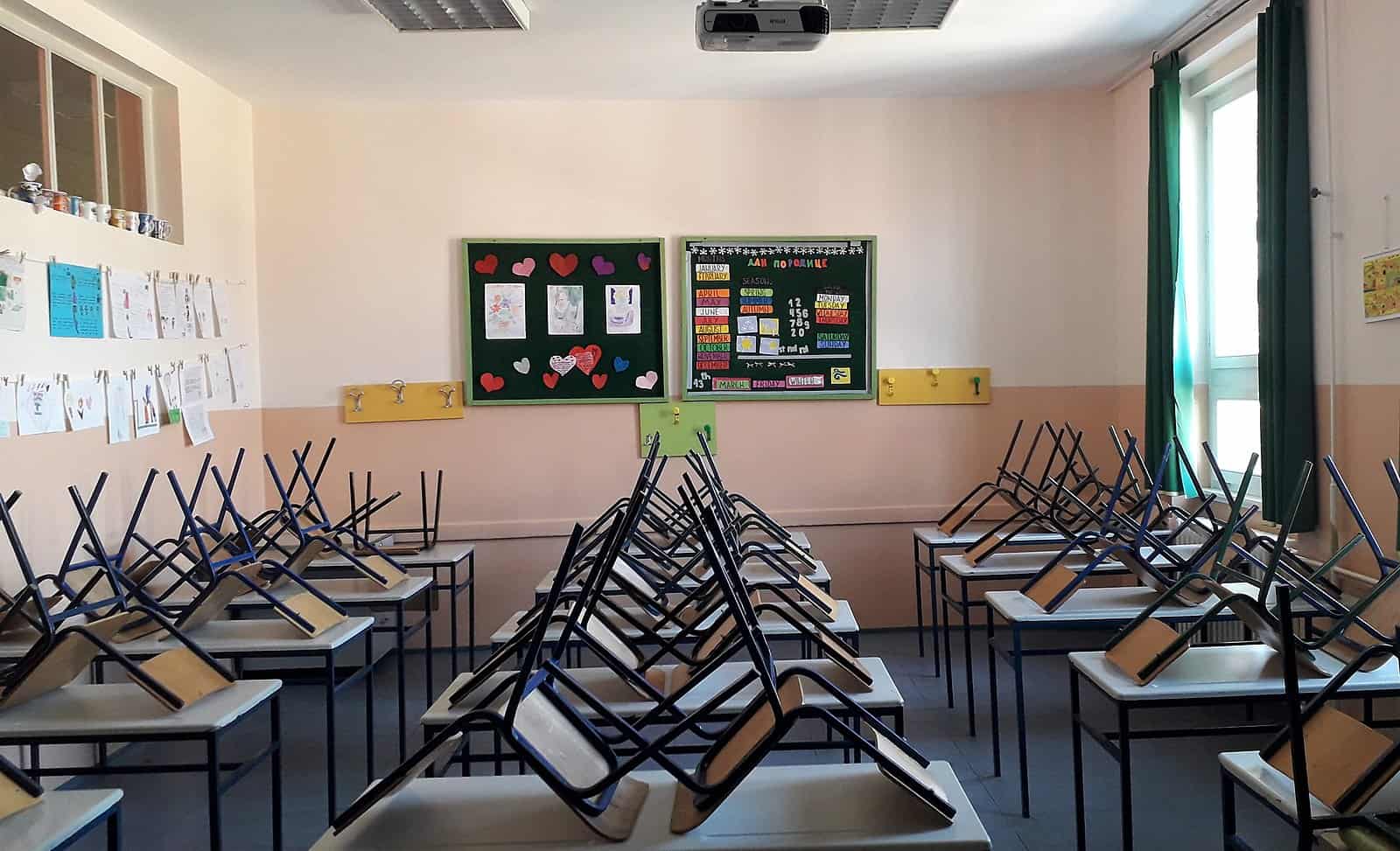
Zachary Boullt is a student at Harvard Law School.
On Sunday, September 27, the Little Rock Education Association announced that its member teachers would not be showing up for in-person classes and would instead be switching to virtual learning. The union cited failures of the schools to comply with COVID safety plans, such as students and teachers not wearing masks, face shields not being used, over a third of sites not being properly cleaned or disinfected, and staff with compromised immune systems being required to teach in-person in high risk areas at their ADA accommodation sites. However, the Little Rock School District swiftly responded by disciplining the 69 teachers who sent in letters to their principals announcing that they would be ceasing in-person instruction. In response to the discipline issued, the LREA has now voted to call off the action. The Little Rock School District responded to the LREA’s allegations, though most responses either recommended that individual safety violations be reported to the individual school’s building supervisor or mentioned that the cited safety concern was an optional provision.
The Seventh Circuit is considering whether public sector unions can refuse representation for nonmembers in the unit who do not pay dues. The case has been brought by the International Union of Operating Engineers Local 150, objecting to the obligation to support nonpaying nonmembers in grievance proceedings for free. The case is part of a series of challenges based in Janus v. AFSCME brought by Local 150, attempting to use the Janus decision to benefit the Local’s operations. However, the Local 150’s argument has been opposed by AFSCME, AFT, National Education Association, and SEIU, who all joined a brief against Local 150. The National Right to Work Defense Foundation also filed a brief opposing the Local 150. Though normally opposing parties, both the opposed public sector unions and the Foundation are worried about shaking up the duty of fair representation. An opposing brief from the Illinois Attorney General’s office focused on Local 150’s lawsuit’s potential effects on exclusive representation.
On September 18, OSHA announced that it would no longer publish its detailed workplace safety violation citations as part of its press releases, but instead would only make the information available after a FOIA request. Now Bloomberg Law has offered an analysis of the legality and ramifications of the change. While probably a legal change, the FOIA requirement will delay preliminary investigations of previous workplace safety violations by weeks or months. The new citation publication restriction has been timed to coincide with OSHA’s six-month deadline to cite employers inspected for COVID-19 safety violations from mid-March.
A proposed rule from the Department of Labor’s Office of Labor-Management Standards updating union financial disclosure forms has passed the stage of Office of Information and Regulatory Affairs review. So far only a short description of the rule has been released to the public, but passing OIRA review means the rule could be released to the public in a few days. The updated rule and form primarily applies to unions with over $250,000 in assets. The rule’s impetus was the recent United Auto Workers corruption scandal, including the embezzlement charges against Gary Jones. Democrats have argued that increased financial disclosure rules such as this one are meant to divert more union resources to administrative work rather than organizing and advocacy.
The Council of School Supervisors and Administrators in New York City has passed a vote of no confidence in Mayor Bill de Blasio and Schools Chancellor Richard Carranza. The union’s executive board voted unanimously to call for the city to cede control of its education department to the State Education Department for the duration of the pandemic. The union has alleged the city has poorly handled the provision of staffing, communication, and equipment for school reopening. Particularly noteworthy accusations were schools being understaffed with teachers, inadequate provision of remote learning equipment, and poor or belated communication regarding school ventilation reports and safety plans.






Daily News & Commentary
Start your day with our roundup of the latest labor developments. See all
July 14
More circuits weigh in on two-step certification; Uber challengers Seattle deactivation ordinance.
July 13
APWU and USPS ratify a new contract, ICE barred from racial profiling in Los Angeles, and the fight continues over the dismantling of NIOSH
July 11
Regional director orders election without Board quorum; 9th Circuit pauses injunction on Executive Order; Driverless car legislation in Massachusetts
July 10
Wisconsin Supreme Court holds UW Health nurses are not covered by Wisconsin’s Labor Peace Act; a district judge denies the request to stay an injunction pending appeal; the NFLPA appeals an arbitration decision.
July 9
the Supreme Court allows Trump to proceed with mass firings; Secretary of Agriculture suggests Medicaid recipients replace deported migrant farmworkers; DHS ends TPS for Nicaragua and Honduras
July 8
In today’s news and commentary, Apple wins at the Fifth Circuit against the NLRB, Florida enacts a noncompete-friendly law, and complications with the No Tax on Tips in the Big Beautiful Bill. Apple won an appeal overturning a National Labor Relations Board (NLRB) decision that the company violated labor law by coercively questioning an employee […]